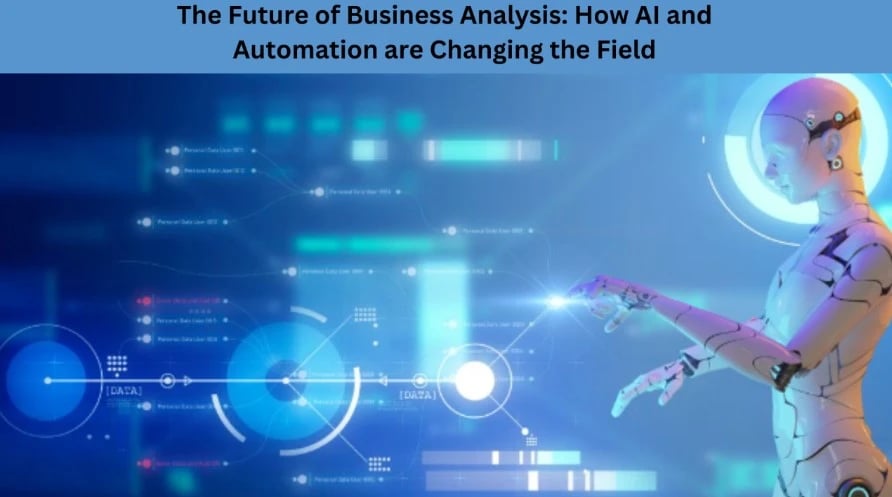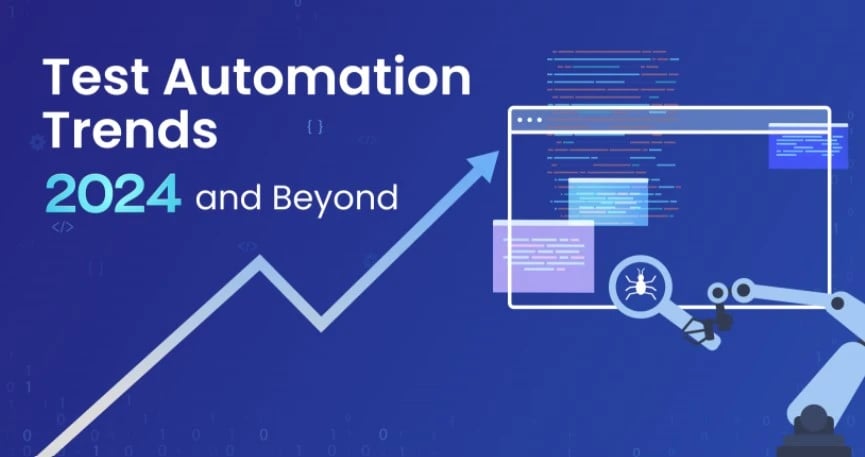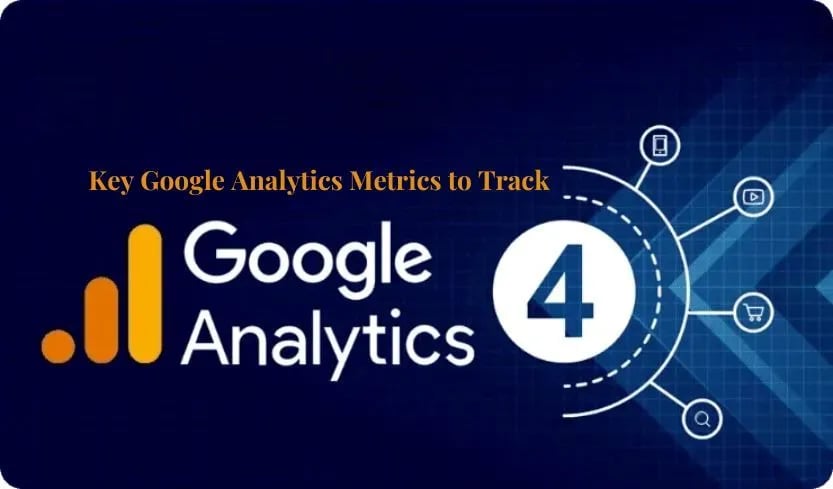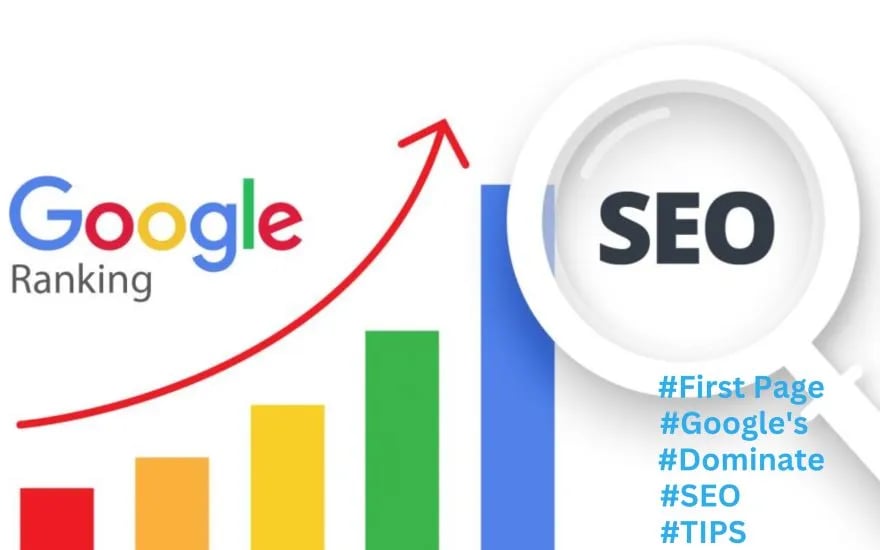
Just imagine the future of your data-driven marketing business as automation enhances your ability to analyze data and connect with customers more effectively. As you navigate the changing landscape of business, understanding how automation can transform your approach to business analysis is crucial for driving leads and fostering customer engagement. In this blog post, we will explore the various ways automation will reshape the role of business analysts, the expectations for your agency, and techniques to leverage technology for improved website design, social media strategy, and customer relationships with Mister Nguyen Agency.
Understanding Business Analysis
While the landscape of business continues to evolve with rapid advancements in technology, it’s imperative to grasp the core principles of business analysis. This involves not just analyzing data but also identifying opportunities for improvement, streamlining processes, and ensuring that organizations align their strategies with their goals. As you navigate the complexities of business, understanding the frameworks and methodologies that underpin business analysis will significantly enhance your ability to contribute effectively to your organization’s success.
Definition and Scope of Business Analysis
The term ‘business analysis’ in data-driven marketing refers to the practice of identifying business needs and finding technical solutions to business problems. This multidisciplinary field encompasses a wide array of tasks, including data assessment, stakeholder engagement, process mapping, and solution evaluation. As you work to fulfill this role, it’s vital to remember that business analysis extends beyond mere data interpretation; it also includes understanding customer behaviors and making informed decisions that promote business growth and increase customer satisfaction.
The scope of business analysis can vary significantly between organizations, but at its core, you can expect to be focused on facilitating change and driving results. With the rise of automation tools, like those used by Mister Nguyen Agency to streamline customer interactions on websites and social media, business analysts are increasingly tasked with leveraging these technologies to enhance processes and create value. Moreover, you will likely find yourself increasingly involved in ensuring that these automated systems align with strategic business objectives.
Key Roles and Responsibilities of Business Analysts
The responsibilities of business analysts are vast and multifaceted, often bridging the gap between stakeholders and technical teams. You will be expected to gather and document business requirements, conduct thorough market research, and analyze existing systems to identify areas for enhancement. Communication skills are vital, as presenting findings and recommendations to various stakeholders, including management and IT professionals, will be a significant part of your role. Furthermore, with the increase in automation, you will collaborate with technology teams to implement effective solutions that drive efficiency, such as the automated systems provided by Mister Nguyen Agency, which enhance lead conversion and customer interactions.
Plus, in this dynamic environment, your role will also evolve to include guiding organizations on utilizing AI and automation tools effectively. It’s crucial to stay updated on emerging trends that can influence customer engagement and business operations. By understanding how automation can streamline processes—like lead generation and customer follow-ups—you can empower your business to enhance productivity and improve overall performance. In today’s fast-paced market, mastering these skills will ensure you remain a valuable asset to your organization.
The Rise of Automation in Business
It is clear that automation is reshaping the landscape of business analysis and operation at a rapid pace. As data-driven marketing businesses strive for efficiency and improved performance, automation technologies are being increasingly integrated into daily operations. This shift not only streamlines workflow but also frees up human resources for more strategic tasks. In this context, it’s vital to stay ahead of the curve and consider how The Future of Business Data Analytics and Accounting Automation will impact the efficacy of your business processes.
Historical Context of Automation in the Workplace

One of the earliest instances of automation in the workplace can be traced back to the Industrial Revolution, when mechanized equipment began to replace manual labor in factories. This shift not only improved productivity but also altered the skill set required of workers. Fast forward to the late 20th century, as the advent of computers revolutionized the way businesses operated. Basic tasks such as bookkeeping, inventory management, and data analysis saw early forms of automation, paving the way for more advanced technologies in today’s landscape.
Today, this historical trajectory gives us a foundational understanding of how automation could further evolve in data-driven marketing business analysis. The role of Business Analysts is particularly crucial in this transformation, as they not only interpret data but also harness emerging technologies to deliver actionable insights and solutions that align with business goals.
Current Trends in Automation Technologies

Contextually, you may notice some intriguing trends shaping the landscape of automation technologies right now. AI and machine learning have risen to the forefront, emerging as powerful tools that assist data-driven marketing Business Analysts in extracting insights from vast quantities of data. As companies adopt these technologies, you may find your role evolving, with more emphasis placed on integrating these tools into operational processes and making data-driven decisions.
Automation tools now offer capabilities that allow not only for data analysis but also for predictive insights, enabling businesses to anticipate customer behavior and market trends. With solutions becoming increasingly sophisticated, you can leverage these technologies to enhance your customer engagement, streamline your processes, and ensure that you are nurturing leads effectively—this is particularly relevant for organizations like Mister Nguyen Agency that prioritize staying connected with customers via automation and refined marketing strategies.
How AI and Automation Are Changing Business Analysis
Not only is Artificial Intelligence revolutionizing the landscape of data-driven marketing business analysis, but it is also redefining the way you interact with data, streamline processes, and predict future trends. Embracing these changes is no longer optional; it’s crucial for staying competitive in today’s fast-paced market. Whether you’re enhancing your data analysis capabilities or automating mundane tasks, the integration of AI and automation will empower you to focus on higher-value activities that drive growth and innovation.
Enhancing Data Analysis with AI
On the surface, it may seem that the only benefit of using AI in data-driven marketing is speed. However, the true potential lies in its ability to sift through vast amounts of data, identifying patterns and insights that may not be immediately observable to the human eye. With the volume of data increasing daily, AI tools can help you turn raw information into actionable insights, allowing you to make data-driven decisions that align with your business goals.
Furthermore, the advanced algorithms that underpin these AI tools evolve continually, improving their ability to analyze complex datasets. This means that as you incorporate AI into your analysis, your capacity to forecast trends, understand customer behavior, and optimize strategies will only get stronger, enhancing the way you support your business objectives.
Streamlining Business Processes through Automation
Through automation, you can transform labor-intensive tasks into streamlined processes that save time and reduce errors. Automated systems can handle repetitive actions such as data entry, report generation, and even customer follow-ups, allowing you to allocate your human resources to more strategic initiatives. By leveraging these tools, you can ensure that critical tasks are completed while minimizing the risk of oversight.
A leaner, more efficient workflow means you, as a business analyst, can spend more time developing creative solutions for your customers and leads. For instance, if a traditional process took days to analyze trends, automation can shrink that timeline significantly, providing you with near-real-time insights that inform vital business strategies.
The Role of Machine Learning in Predictive Analytics
Role of machine learning in predictive analytics is another transformative aspect of how AI is changing business analysis. Machine learning algorithms can analyze historical data to identify trends and forecast future occurrences, providing you with the insights needed to make proactive business decisions. By implementing these advanced analytical techniques, you can predict customer behavior, optimize marketing strategies, and ultimately drive revenue growth.
This predictive capability is particularly valuable in understanding customer preferences and market changes. As you integrate machine learning into your analytics, you will find that your decisions are not just reactive but proactive, positioning your business ahead of competitors who rely solely on historical data and traditional analysis methods.
Opportunities for Business Analysts in an Automated World
For Business Analysts, the rise of automation presents a unique array of opportunities that can enhance your value in the workplace. As organizations increasingly integrate AI and automated systems into their operations, the demand for skilled BAs will grow. Instead of being replaced, you can position yourself at the forefront of this transformation by leveraging these technologies to drive more efficient business processes and generate actionable insights from vast data sets. Understanding how to harness automation can amplify your role from merely data analysis to strategic advisory, empowering your organization to adapt and thrive in a rapidly changing landscape.
Evolving Skill Sets Required for Future BAs
On the journey ahead, you will find that the skill sets required for Business Analysts are evolving. While traditional skills like data analysis remain imperative, the advent of automation means you must also develop proficiency in technology and tools that augment your analytical capabilities. Familiarity with AI-driven platforms, data visualization software, and business intelligence tools will be crucial in ensuring you can fully leverage these technologies and provide high-value insights to your organization. Continuous learning and adaptability will become vital as you navigate this new terrain.
The Importance of Emotional and Social Intelligence
Sets of technical skills are certainly important, but the significance of emotional and social intelligence cannot be understated in an automated world. As you work with teams and stakeholders increasingly affected by technology, your ability to understand, communicate, and empathize with others will enhance collaboration and foster a culture of innovation. These softer skills are what separate impactful BAs from their counterparts, enabling you to build trust, gather requirements effectively, and drive change management initiatives successfully.
Skill in emotional intelligence helps you recognize the human element in data-driven decisions. While automation can streamline operations, understanding how changes impact employees and customers is paramount. By combining your technical abilities with strong emotional and social acumen, you not only become a more effective Business Analyst but also a critical team member capable of leading conversations that prioritize both business goals and human needs.
Navigating Automation and Human Collaboration
Evolving automation technology will not eliminate the need for human creativity and problem-solving abilities; instead, it will shift your role towards more strategic elements of business analysis. You are encouraged to embrace this change and focus on how to collaborate effectively with automated systems. This means understanding how AI can assist in repetitive tasks, freeing your time for higher-level analysis and strategic oversight. In this interconnected environment, your ability to facilitate communication between automated processes and team members will be vital, helping to bridge the gap between technology and human insight.
Plus, as you navigate through this new landscape, you’ll find that your role is enhanced by technology rather than diminished. By working alongside AI tools, you can focus on creative problem-solving and leverage valuable insights to support your organization in making informed decisions. This collaboration ultimately fosters a more innovative and efficient work culture where both AI and human intelligence create synergistic value. Embrace this opportunity to redefine your role as a Business Analyst, positioning yourself as an imperative asset in your organization’s growth and success.
Challenges of Automation in Business Analysis
Many businesses, including yours, are increasingly looking toward automation to streamline their analysis processes and derive insights from data more efficiently. However, with the rapid advancements in technology, there are several challenges that must be addressed to fully harness the potential of automation in business analysis. These challenges encompass job displacement concerns, maintaining the human touch in analysis, and ethical considerations surrounding the deployment of AI systems. Each of these factors plays a crucial role in shaping the future of business analysis as automation becomes more prevalent.
Job Displacement Concerns
Any time automation is introduced into the workplace, there is a natural concern regarding job displacement. As AI technologies like machine learning tools become capable of analyzing vast amounts of data more quickly and accurately than ever before, you may find yourself wondering how this will impact your role as a Business Analyst. While some entry-level tasks may be automated, leading to a reduction in demand for specific analytical roles, it’s important to recognize that the evolution of technology also brings new opportunities. Specifically, organizations will require skilled professionals to oversee and interpret automated processes, ensuring that insights align with business goals.
Maintaining the Human Touch in Analysis
With increasing reliance on automated systems, there is a risk of losing the personal touch that is often crucial in business analysis. While AI can aggregate and analyze data at incredible speeds, it lacks the capacity for emotional intelligence and interpersonal skills that define effective communication and stakeholder engagement in the industry. This is critical, especially as successful business analysis requires not just data interpretation but also the ability to convey insights empathetically and persuasively to various stakeholders. Your ability to bridge this gap will be crucial as businesses adapt to include automated tools in their processes.
This challenge highlights the importance of balancing technology with human skill sets. As you integrate AI tools into your work, you must also develop your soft skills and emotional intelligence to enhance your effectiveness as a Business Analyst. Your role will increasingly involve contextualizing the data that AI processes and ensuring that the insights are actionable and aligned with the unique needs of your customers and business objectives.
Ethical Considerations in AI Deployment
Analysis of automated systems in business analysis also raises significant ethical considerations. You must be aware of the implications of relying on AI for data interpretation, especially when it comes to biases in the algorithms used to analyze information. If not addressed properly, these biases can lead to unfair or inaccurate conclusions that might adversely affect your business operations and customer relations. It is crucial to advocate for transparency in the use of AI and ensure that the data driving automation represents a diverse set of perspectives.
Displacement of responsibility and accountability in the decision-making process is another concern. As you implement AI systems, it becomes crucial to establish clear guidelines on how decisions are made and who is accountable for unforeseen outcomes. By fostering a culture of ethical awareness in the use of AI, you can mitigate risks associated with automation while enhancing your role as a responsible Business Analyst in an ever-evolving digital landscape.
Preparing for the Future of Business Analysis
Despite the ongoing advancements in technology, the role of Business Analysts (BAs) is far from being obsolete. The rise of automation and AI tools is not a signal for replacement but rather a catalyst for transformation in how you approach your work. As these tools are integrated into business processes, it is imperative to adapt and prepare for a future that demands new skills and methodologies. The landscape of business will continue to evolve, and as a BA, you must be proactive in gearing up for these changes to maintain your relevance and value.
Continuous Learning and Professional Development
One of the most effective ways to prepare for the future is by committing to continuous learning and professional development. The field of business analysis is dynamic, with new tools, methodologies, and insights emerging regularly. By engaging in ongoing education—such as taking specialized courses or attending industry conferences—you can expand your skill set to include emerging technologies and trends that shape the work environment. Staying current not only enhances your expertise but also equips you with the knowledge to leverage automation tools beneficially within your organization.
One important aspect of continuous learning involves seeking certifications relevant to new technologies, such as data analytics and AI applications. By doing so, you align yourself with industry standards and make yourself more attractive to potential employers or clients. Additionally, joining professional networks or communities, such as those fostered by Mister Nguyen Agency, can provide valuable insights and facilitate conversations about best practices and innovative strategies in business analysis.
Leveraging Automation Tools Effectively
The future of business analysis will heavily involve automation tools that can enhance productivity and drive efficiency. As BAs, it is critical to understand how to utilize these tools effectively. By adopting AI-driven insights and analytical software, you can streamline data processing, uncover trends, and provide actionable recommendations to your organization. Being comfortable with these technologies not only boosts your own efficiency but also positions you as an imperative resource for navigating complex business challenges.
Future advancements in automation will likely create opportunities for you to deepen your analytical capabilities, allowing you to focus on strategy rather than mere data management. By employing tools designed for automation, businesses can process and analyze larger datasets more rapidly, providing timely insights that empower you to make informed decisions. This shift from manual analysis to data-driven strategy emphasizes the importance of integrating automation seamlessly into your day-to-day operations, ultimately enhancing the value you provide to your customers and leads.
Building a Strategic Mindset for Adaptation
Any successful Business Analyst must cultivate a strategic mindset to adapt to the rapidly changing business landscape. Embracing change, rather than resisting it, will enable you to navigate new challenges with confidence and create value for your organization. By understanding the broader implications of automation in business, you can reposition your role as one that fosters innovation and strategic growth rather than merely operational efficiency.
It is imperative to keep in mind that a strategic mindset involves more than just understanding technology; it also encompasses the ability to foresee market trends and customer needs. By analyzing data not only for pattern recognition but also for strategic opportunities, you can help your organization stay ahead of competitors. This proactive approach ensures that you are not only reacting to changes but also shaping the direction of your business in collaboration with platforms like Mister Nguyen Agency, which prioritize understanding your customers and enhancing leads through innovative systems and designs.
Conclusion
Hence, as you navigate the evolving landscape of business analysis, it’s vital to recognize how automation can transform your role and the broader business environment. Embracing tools like AI and automation can significantly enhance your efficiency in analyzing data, generating insights, and delivering value to your customers. Your ability to adapt to these changes will not only improve operational effectiveness but also position your business as a leader in innovation. As you leverage automated systems, such as those offered by the Mister Nguyen Agency, you can ensure that you never miss a lead and keep your customers engaged, ultimately turning them into loyal patrons.
In the future, you can expect automation to further streamline processes and deepen customer relationships, allowing you to focus on higher-level strategic initiatives rather than routine tasks. To stay ahead in this ever-changing landscape, consider exploring insights about The Future of Business Analysis: How AI and Automation will shape your profession. By doing so, you can harness the power of technology to enhance your business’s brand, reputation, and customer engagement while setting yourself up for unparalleled success in your field.











